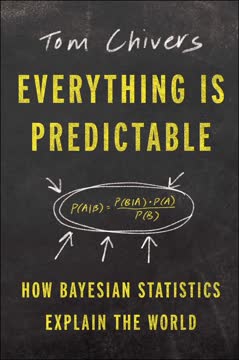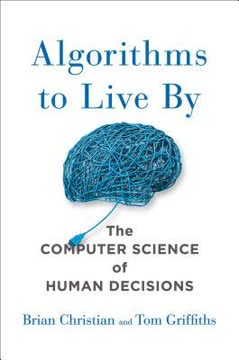Key Takeaways
1. Superforecasters exist and outperform experts and prediction markets
Superforecasters looking out three hundred days were more accurate than regular forecasters looking out one hundred days.
Superforecasters are real. The Good Judgment Project, a forecasting tournament sponsored by IARPA, discovered that some individuals consistently outperform others in predicting geopolitical events. These "superforecasters" beat not only average forecasters but also prediction markets and even professional intelligence analysts with access to classified information.
Characteristics of superforecasters:
- High cognitive abilities and knowledge
- Active open-mindedness
- Granular thinking
- Regular belief updating
- Strong teamwork skills
- Probabilistic thinking
- Ability to break down complex problems
Superforecasters are not infallible, but they demonstrate that accurate forecasting is a skill that can be cultivated and improved with practice and the right mindset.
2. Cognitive abilities and knowledge are important, but not sufficient
Regular forecasters scored higher on intelligence and knowledge tests than about 70% of the population. Superforecasters did better, placing higher than about 80% of the population.
Intelligence matters, but only to a point. While superforecasters tend to score higher on intelligence and knowledge tests, these factors alone do not explain their superior performance. Many highly intelligent and knowledgeable individuals fail to make accurate predictions.
The key difference lies in how superforecasters use their cognitive abilities:
- They actively seek out diverse perspectives
- They constantly question their own assumptions
- They focus on process rather than outcomes
- They are willing to admit mistakes and change their minds
This suggests that while a certain level of intelligence and knowledge is necessary for good forecasting, what truly sets superforecasters apart is their approach to thinking and decision-making.
3. Active open-mindedness is crucial for accurate forecasting
For superforecasters, beliefs are hypotheses to be tested, not treasures to be guarded.
Embracing uncertainty is key. Superforecasters cultivate a mindset of active open-mindedness, which involves:
- Constantly seeking out information that might prove their beliefs wrong
- Welcoming criticism and alternative viewpoints
- Adjusting their beliefs in light of new evidence
- Avoiding ideological commitments that might blind them to contrary information
This approach helps superforecasters avoid common cognitive biases such as confirmation bias and overconfidence. By treating their beliefs as provisional hypotheses rather than fixed truths, they remain flexible and responsive to changing circumstances.
4. Granular thinking improves forecast accuracy
Superforecasters often think in terms of precise probability estimates, like 63% versus 65%, rather than vague terms like "likely" or "unlikely."
Precision enhances accuracy. Superforecasters distinguish between fine degrees of uncertainty, often using probability estimates down to single percentage points. This granular thinking forces them to:
- Carefully consider the strength of their evidence
- Avoid vague language that can mask uncertainty
- Make more precise and testable predictions
Benefits of granular thinking:
- Allows for more nuanced updates as new information emerges
- Facilitates clearer communication about levels of certainty
- Enables more accurate aggregation of multiple forecasts
By thinking in precise probabilities, superforecasters develop a more calibrated sense of uncertainty and improve their overall accuracy.
5. Regular belief updating is key to superforecasting
Superforecasters update much more frequently, on average, than regular forecasters.
Constant refinement improves predictions. Superforecasters don't just make a forecast and stick to it; they continually revise their predictions as new information becomes available. This process of regular updating:
- Allows for quick incorporation of new evidence
- Helps correct initial errors or biases
- Improves calibration over time
Effective updating techniques:
- Set reminders to review forecasts regularly
- Actively seek out new information relevant to the forecast
- Make small, incremental adjustments rather than dramatic swings
- Track the reasons for updates to identify patterns and improve future forecasts
By treating forecasting as an ongoing process rather than a one-time event, superforecasters maintain more accurate predictions over time.
6. Teamwork enhances forecasting performance
On average, teams were 23% more accurate than individuals.
Collaboration boosts accuracy. The Good Judgment Project found that teams of forecasters consistently outperformed individuals, even when those individuals were superforecasters. This is because teams:
- Bring together diverse perspectives and knowledge
- Allow for constructive criticism and debate
- Aggregate individual judgments to reduce errors
Effective forecasting teams:
- Foster an environment of respectful disagreement
- Encourage members to explain their reasoning clearly
- Use structured techniques to combine individual forecasts
- Maintain a balance between cohesion and diversity of thought
By leveraging the power of collective intelligence, teams can achieve levels of accuracy that surpass even the best individual forecasters.
7. Overconfidence is the enemy of good forecasting
Confidence and accuracy are positively correlated. But research shows we exaggerate the size of the correlation.
Beware of certainty. One of the most common pitfalls in forecasting is overconfidence – the tendency to be more certain in our predictions than the evidence warrants. Superforecasters combat this by:
- Constantly questioning their own judgments
- Seeking out disconfirming evidence
- Expressing uncertainty even when they feel confident
Techniques to reduce overconfidence:
- Consider alternative scenarios that could lead to different outcomes
- Explicitly list reasons why your forecast might be wrong
- Use calibration training to improve your sense of true probabilities
- Avoid making extreme probability estimates (0% or 100%) except in rare cases
By maintaining appropriate humility about their forecasts, superforecasters avoid the trap of false certainty that often leads to poor predictions.
8. Probabilistic thinking is essential for accurate predictions
Probabilistic thinking demands teasing subtle signals from noisy news flows—all the while resisting the lure of wishful thinking.
Embrace uncertainty. Superforecasters think in terms of probabilities rather than certainties. This mindset allows them to:
- Express nuanced degrees of confidence in their predictions
- Incorporate new information smoothly without dramatic reversals
- Avoid the trap of binary thinking (either it will happen or it won't)
Key aspects of probabilistic thinking:
- Use precise numerical probabilities (e.g., 60% chance) instead of vague terms
- Consider multiple possible outcomes and assign probabilities to each
- Update probabilities incrementally as new information arrives
- Recognize that even low-probability events sometimes occur
By embracing uncertainty and thinking probabilistically, superforecasters can make more accurate and nuanced predictions about complex events.
9. Breaking down complex problems improves forecasting
Channel the playful but disciplined spirit of Enrico Fermi who—when he wasn't designing the world's first atomic reactor—loved ballparking answers to head-scratchers such as "How many extraterrestrial civilizations exist in the universe?"
Decompose to conquer. Superforecasters excel at breaking down complex problems into smaller, more manageable components. This approach, often called "Fermi-izing" after physicist Enrico Fermi, involves:
- Identifying key factors that influence the outcome
- Estimating probabilities for each factor
- Combining these estimates to reach an overall forecast
Benefits of problem decomposition:
- Makes seemingly intractable problems more approachable
- Reveals hidden assumptions and knowledge gaps
- Allows for more precise updating as new information emerges
- Facilitates clearer reasoning and communication about the forecast
By systematically breaking down complex issues, superforecasters can tackle even the most daunting prediction challenges with greater accuracy and confidence.
10. Good judgment requires balancing opposing errors
Implementing each commandment requires balancing opposing errors.
Navigate trade-offs wisely. Effective forecasting often involves finding the right balance between competing principles or potential errors. Some key trade-offs include:
- Confidence vs. humility
- Quick updates vs. stable predictions
- Reliance on data vs. incorporation of intuition
- Individual judgment vs. team consensus
- Granular thinking vs. big-picture perspective
Superforecasters excel at:
- Recognizing when they're at risk of falling into one extreme
- Adjusting their approach to maintain an optimal balance
- Being flexible in their strategies depending on the specific forecasting challenge
By skillfully navigating these trade-offs, superforecasters can avoid common pitfalls and maintain good judgment across a wide range of forecasting situations.
Last updated:
FAQ
What's Superforecasting: The Art and Science of Prediction about?
- Focus on Prediction Skills: The book explores how certain individuals, termed "superforecasters," excel at making accurate predictions about future events.
- Research-Based Insights: It presents findings from the Good Judgment Project, highlighting the importance of rigorous analysis and continuous learning.
- Practical Applications: The skills of superforecasters can be cultivated and applied in various fields, including politics, business, and personal decision-making.
Why should I read Superforecasting: The Art and Science of Prediction?
- Improve Decision-Making: The book enhances your ability to make informed decisions by understanding effective forecasting principles.
- Learn from Experts: It offers insights from top forecasters, showcasing their techniques and thought processes.
- Engaging and Accessible: Philip E. Tetlock presents complex ideas in an engaging manner, making the content accessible to a wide audience.
What are the key takeaways of Superforecasting: The Art and Science of Prediction?
- Forecasting is a Skill: Forecasting is not just about luck; it is a skill that can be developed through practice and the right mindset.
- Importance of Updating: Superforecasters frequently update their predictions based on new information, significantly improving accuracy.
- Diverse Perspectives Matter: Considering multiple viewpoints and synthesizing them into a coherent forecast is crucial for effective forecasting.
What is a superforecaster according to Superforecasting?
- Definition of Superforecaster: A superforecaster is an individual who consistently makes accurate predictions about future events.
- Traits of Superforecasters: They are humble, reflective, and actively open-minded, viewing their beliefs as hypotheses to be tested.
- Commitment to Continuous Learning: They embrace a "growth mindset," believing that their abilities can be developed through effort and learning.
How do superforecasters differ from regular forecasters in Superforecasting?
- Cognitive Habits: Superforecasters employ distinct cognitive habits, such as open-mindedness and careful analysis.
- Use of Outside and Inside Views: They balance outside views (base rates) with inside views (specific details) when making forecasts.
- Frequent Updating: Superforecasters are diligent in updating their predictions based on new information, enhancing accuracy.
What is the Good Judgment Project mentioned in Superforecasting?
- Research Initiative: The Good Judgment Project was a large-scale research initiative to identify and improve forecasting skills.
- Tournament Structure: It operated as a forecasting tournament, where participants competed to make the most accurate predictions.
- Findings on Superforecasters: The project revealed that a small percentage of participants, dubbed "superforecasters," consistently outperformed others.
What is the significance of the term "dragonfly eye" in Superforecasting?
- Metaphor for Perspective: The term refers to the ability to see multiple perspectives simultaneously, akin to how a dragonfly’s eyes work.
- Enhanced Accuracy: This approach allows forecasters to better understand complex situations and make more informed predictions.
- Encourages Collaboration: It promotes collaboration among forecasters, encouraging them to share insights and challenge assumptions.
What is the "dilution effect" mentioned in Superforecasting?
- Understanding the Dilution Effect: It refers to the phenomenon where irrelevant information weakens the confidence of individuals in their judgments.
- Impact on Decision-Making: This effect can lead to overreaction or underreaction to important information.
- Relevance to Forecasting: Superforecasters strive to focus on pertinent information, filtering out noise to concentrate on relevant data.
How do superforecasters update their beliefs according to Superforecasting?
- Frequent and Incremental Updates: They regularly revisit their predictions and make small adjustments based on new evidence.
- Use of Bayesian Thinking: Superforecasters employ Bayesian methods to weigh prior knowledge against new information.
- Continuous Learning Process: They view belief updating as an ongoing process, learning from both successes and failures.
What is the significance of "perpetual beta" in Superforecasting?
- Concept of Perpetual Beta: It refers to the idea that superforecasters are always in a state of learning and improvement.
- Mindset of Adaptability: This mindset encourages them to remain flexible and open to change.
- Application in Various Fields: The principle can be applied beyond forecasting, emphasizing ongoing education and skill enhancement.
What are the "Ten Commandments for Aspiring Superforecasters" in Superforecasting?
- Guidelines for Improvement: They serve as practical advice for enhancing forecasting abilities.
- Focus on Key Principles: Key commandments include triaging questions and maintaining humility in the face of uncertainty.
- Encouragement of Practice: They stress the importance of practice and feedback in developing forecasting skills.
What are some common forecasting errors discussed in Superforecasting?
- Overconfidence and Underconfidence: Forecasters often fall into the traps of overconfidence or underconfidence in their predictions.
- Hindsight Bias: This occurs when individuals believe they could have predicted an event after it has happened.
- Failure to Update Beliefs: Many forecasters struggle to adjust their predictions in light of new information.
Review Summary
Superforecasting receives high praise for its insightful analysis of prediction and forecasting. Readers appreciate Tetlock's rigorous research on "superforecasters" who consistently outperform experts. The book explores cognitive biases, decision-making processes, and the importance of open-mindedness in forecasting. Many find it thought-provoking and well-written, drawing comparisons to works by Kahneman and Taleb. While some criticize repetition or political focus, most consider it a valuable read for understanding prediction and critical thinking in an uncertain world.
Similar Books










Download PDF
Download EPUB
.epub digital book format is ideal for reading ebooks on phones, tablets, and e-readers.





